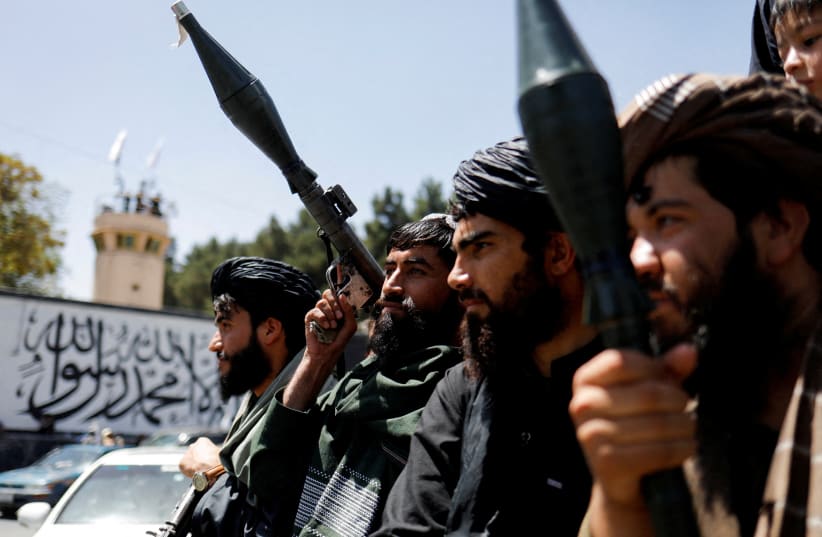The Taliban's morality ministry has dismissed more than 280 members of the security force for failure to grow a beard and have detained more than 13,000 people in Afghanistan for "immoral acts" in the past year, officials said on Tuesday.
The Ministry for the Prevention of Vice and Propagation of Virtue said in its annual operations update that around half of those detained had been let go after 24 hours. It did not break down the type of the alleged offenses or gender of the detainees.
Mohibullah Mokhlis, Director of Planning and Legislation at the ministry, told a press conference officials had destroyed 21,328 musical instruments in the past year and prevented thousands of computer operators from selling "immoral and unethical" films in markets.
It had identified 281 security force members for not having a beard and they had been dismissed, he said, in line with their interpretation of Islamic law.
The morality ministry, which took over the disbanded women's ministry premises in Kabul after the Taliban took over in 2021, has been criticized by human rights organizations and the United Nations for restrictions on women and inhibiting freedom of expression.

The Morality Police's Stance on Women
The United Nations' mission to Afghanistan has reported cases of morality ministry officials stopping and detaining women, at times for a few hours, for not meeting their interpretation of Islamic dress.
The Taliban has called the allegations of detentions "baseless" and says the rules apply their interpretation of Islamic law and Afghan customs.
The morality ministry did not provide figures in relation to policing of women's attire or their travel without a male guardian, which authorities have also barred for longer distances. It said that a new plan was being worked on to ensure its Islamic dress rules were followed, overseen by the supreme spiritual leader who is based in the southern city of Kandahar.
"Based on the guidance of the Supreme Leader, the draft plan for observing women's hijab (Islamic dress) has been formulated and approved," Mokhlis said.
The morality ministry has previously said that women should cover their faces or wear an all-enveloping burqa and that enforcement would involve "encouragement" with women's male family members being targeted rather than women directly.
Most Afghan women covered their hair in public in the conservative country even before the Taliban takeover, but some, especially Kabul, did not usually cover their faces or wear a burqa.
Mokhlis said they had prevented just over 200 cases of the sale of women and over 2,600 cases of violence against women.
